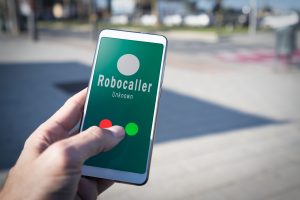What looks like a local call could be scammers dialing for dollars
Better Business Bureau — September 4, 2024
Scammers are increasingly using local area codes to deceive victims, making them more likely to answer the call.
With the rise of technology, robo-calling has become a prevalent issue, leading to a surge in scam calls across the nation.
Scammers are increasingly using local area codes to deceive victims, making them more likely to answer the call. The Better Business Bureau is warning northern Illinois residents that Chicago area code 312 is number eight on the list of the most often spoofed area codes used in scam calls.
Dennis Horton, director of the Rockford Regional Office of the Better Business Bureau, says, “These fake calls are designed to trick unsuspecting individuals into giving up personal information and/or financial details.”
According to Truecaller, Americans lose tens of billions of dollars to phone scams every year and, from 2021-
24, the numbers continue to rise in many categories. The other most used area codes are:
- 202 — Washington D.C.
- 214 — Dallas, Texas
- 310 — Beverly Hills, California
- 407 — Orlando, Florida
- 702 — Las Vegas, Nevada
- 917 — New York, New York
- 786 — Miami, Florida
Horton notes, “The calls are growing in frequency and sophistication. The scammers use familiar area codes to target individuals, often impersonating legitimate organizations, government agencies, or financial institutions.”
The intent is to create a sense of urgency, prompting recipients to act quickly without verifying the legitimacy of the call.
There are a number of signs to look for to determine if the call is a scam:
- Unsolicited calls: Be wary of calls from unknown numbers, especially if the caller asks for personal or financial information.
- Urgency and threats: Scammers often use high-pressure tactics, such as threats of legal action or claims that your account has been compromised.
- Requests for payment: Legitimate organizations will never ask for payment via gift cards, wire transfers, or cryptocurrency over the phone.
- Caller ID Spoofing: Scammers can manipulate Caller ID to display a local or familiar number, making the call appear more legitimate.
BBB recommends these preventative measures:
- Do not answer unknown calls: Let calls from unknown numbers go to voicemail. If it’s important, they will leave a message.
- Verify the caller: If you receive a suspicious call, hang up and contact the organization directly using a verified phone number.
- Report scam calls: Report any suspicious calls to the Federal Trade Commission or your local consumer protection agency. Also report the call to BBB ScamTracker.
For more information, visit BBB.org or follow us @ChicagoBBB on social media. Look for the BBB seal, The Sign of a Better Business.
BBB of Chicago and Northern Illinois is a nonprofit organization that has served consumers and trustworthy businesses for 98 years and is a part of the IABBB. We help protect consumers from scams and provide a free database for consumers to see business ratings and reviews to find businesses they can trust. We connect customers to businesses they can trust.
The International Association of Better Business Bureaus (IABBB) is the network hub for BBBs in the US, and Canada.






